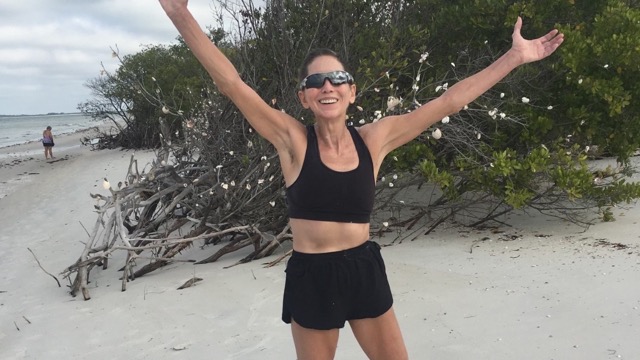Turning the Tide: The Hughes' Journey Through Stroke Survival and Hope
In the blink of an eye, life can take an unexpected turn. For Dave Hughes and his wife Lisa, a typical Friday evening turned into a nightmare when Lisa suffered a stroke.
With quick thinking, Dave Hughes dialed 911, and within minutes, medical assistance arrived. However, the severity of the situation became evident as his wife's condition deteriorated rapidly, with seizures occurring en route to Morton Plant Hospital. He faced the harrowing reality that he might lose the love of his life.
Upon reaching Morton Plant Hospital, the medical team wasted no time in providing critical care. Devon H. Haydon, MD, a BayCare Medical Group neurosurgeon performed an urgent surgery to alleviate pressure on Lisa Hughes’ brain, followed by Dr. Eric Lopez del Valle, MD, Neuroradiologist, Radiology Associates of Clearwater, a neuroradiologist with Radiology Associates of Clearwater and director of Interventional Neuroradiology and Stroke at Morton Plant Hospital, who worked tirelessly to stop the bleeding. The initial prognosis was grim, but amidst the uncertainty, Dave Hughes witnessed the unwavering dedication of the healthcare professionals who tended to his wife's every need with compassion and expertise.
Despite the odds stacked against her, Lisa Hughes’ strength and resilience shone through. With each passing day, she defied expectations, moving steadily along the path to recovery. From the ICU to rehabilitation, her progress was nothing short of remarkable as she was guided by a supportive team of nurses, doctors and rehabilitation specialists.
Just 70 days after being told she might never walk again, Lisa Hughes defied the odds and was running down Clearwater Beach—a testament to her perseverance and the power of hope.
Today, the Hugheses are advocates for stroke awareness, sharing their journey to inspire others facing similar struggles. Through her journey, Lisa Hughes hopes to be a beacon of hope for fellow survivors, proving that with resilience and determination, anything is possible. Her story serves as a powerful reminder of the importance of awareness, education, and support for stroke survivors and their loved ones.
What is a Stroke?
As Stroke Awareness Month unfolds, it’s important to recognize the signs of stroke, advocate for timely medical intervention, and support those affected by this life-altering condition.
Stroke is a leading cause of disability and death in the United States, with more than 795,000 people affected every year. Recognizing the signs of a stroke and acting quickly can save lives. Remember the acronym B.E. F.A.S.T.:
- Balance: Sudden loss of balance or coordination.
- Eyes: Sudden trouble seeing out of one or both eyes.
- Face: Sudden drooping on one side of the face.
- Arm: Sudden weakness in one arm or leg.
- Speech: Sudden trouble with speech or understanding.
- Terrible Headache: Sudden onset of a severe headache. If you notice any of these symptoms, it is time to call 911.
Time is critical when it comes to stroke, as more than two million brain cells die per minute. Immediate medical attention is crucial for the best chance of recovery.
Learn more about B.E. F.A.S.T. through BayCare HealthChat’s podcast in English and Spanish.
Providing the paramedics with the most accurate information about the patient will help the hospital staff intervene quickly and move forward with treatment. Key information to provide can include when the last time was the individual appeared normal, family history, current medication, recent surgeries, and any medical conditions that may assist in the treatment plan, including but not be limited to, high blood pressure or irregular heartbeat (also known as AFib).
All of BayCare’s 13 Stroke Centers are certified by DNV, an international accrediting body that emphasizes clinical best practices along with a disciplined management system. Morton Plant Hospital, certified as a Comprehensive Stroke Center, offers immediate and innovative treatment for stroke patients, as well as a comprehensive program to assess the causes of a stroke and recommend a personalized treatment plan. Treatment plans often combine medication with surgical procedures, including new minimally invasive procedures that require specially trained and certified physicians and nurses.
For more information about BayCare’s services for stroke, call 727-461-8635 or visit BayCareStroke.org.

